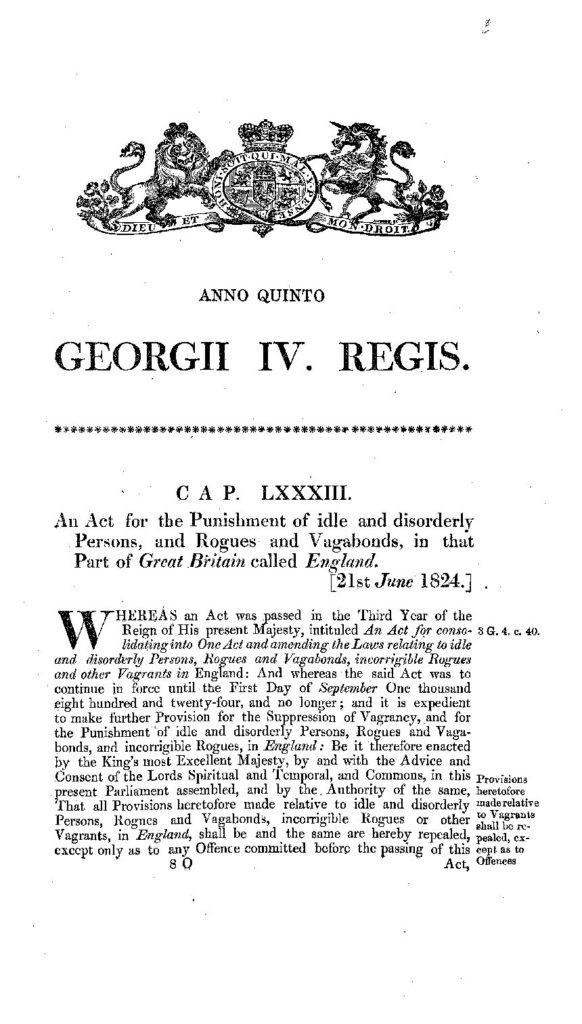

This sufficient to show the offence charged and the conviction. The Justices state that the prisoner has been charged with being a vagrant, and was convicted on competent proof. But I am of the opinion that it is not necessary that the commitment should state all the particulars necessary to make out the offence. If it were necessary that all the matters required to be proven should be stated in the commitment then neither offence is fully stated therein. In this case the words "is destitute" are stricken out. In the present case the words "lives without employment" are erased from the commitment.īy the act of 1833, "A person, who, being an habitual drunkard, is destitute and without visible means of support," is to be deemed a vagrant. 1, 602,) an idle person, who, not having means to maintain himself, lives without employment, is to be deemed a vagrant.

The offence of which the prisoner was convicted is stated as follows, viz: "Who stands charged before me with being a vagrant, viz: an idle person, who, not having visible means to maintain himself and is an habitual drunkard." The confusion of the sentence arises from the use of a printed form of commitment and erasing part, so as to insert another grade of the same offence as provided by the statute.īy the Revised Statutes, (vol. The jurisdiction of the Justice making the commitment is not disputed.

I think there can be no doubt on both points. It is apparent therefore that I should only inquire whether the Justice had jurisdiction of the prisoner, for an offence defined in any of the statutes of the State.

If the commitment is regular, and the Justice has jurisdiction of the matter, no relief should be afforded in this proceeding. The statute permits another mode for correcting the ends of the Justice which should be resorted to. The practice of reviewing convictions before Justices on habeas corpus is not to be commended. He is now brought before me on habeas corpus, and his discharge asked for on the ground that the commitment is not for any offence provided by statute. The prisoner was committed by a Police Justice, on the ground of his having been convicted of being a vagrant, viz.: an idle person not having visible means to maintain himself, and an habitual drunkard. The facts of the case will appear from the opinion, which is given in full: The present opinion, by Justice INGRAHAM, delivered at Chambers of the Supreme Court, seems to be in conflict with Justice SUTHERLAND's ideas of what constitutes vagrancy, as expressed in the opinion referred to. In the TIMES of the 28th August was published an opinion of Justice SUTHERLAND discharging a prisoner on the ground, that to be a prostitute was not to be a vagrant. This was a habeas corpus obtained for the purpose of effecting the discharge of the prisoner, on the ground that his commitment as a vagrant was erroneous.


 0 kommentar(er)
0 kommentar(er)
